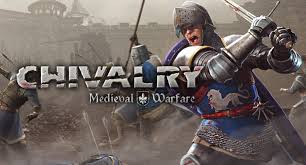记忆方法
将“chivalry”分解为“chiv”和“alry”。想象一位骑士(chiv)在举行一种高级的仪式(alry),这个仪式体现了他的勇气、荣誉和骑士精神,从而帮助记忆“chivalry”这个单词表示的骑士道德和勇气。
以上内容由AI生成, 仅供参考和借鉴
中文词源
chivalry 骑士制度
来自拉丁词caballus, 马,指骑马的战士。-ry, 名词后缀。
英语词源
- chivalry
-
chivalry: [13] Etymologically, chivalry is the practice of riding horses. It comes from Old French chivalerie, a derivative of medieval Latin caballārius (related to, and perhaps direct source of, English cavalier). This meant ‘horseman’, and was formed from Latin caballus ‘horse’ (whence French cheval). The meaning of chivalerie had two main strands, both of them adopted into English: on the one hand ‘mounted soldiery’ (a sense superseded by the related cavalry), and on the other ‘knightly behaviour’.
=> cavalier, cavalry - chivalry (n.)
- c. 1300, "body or host of knights; knighthood in the feudal social system; bravery in war, warfare as an art," from Old French chevalerie "knighthood, chivalry, nobility, cavalry, art of war," from chevaler "knight," from Medieval Latin caballarius "horseman," from Latin caballus "nag, pack-horse" (see cavalier). From late 14c. as "the nobility as one of the estates of the realm," also as the word for an ethical code emphasizing honor, valor, generosity and courtly manners. Modern use for "social and moral code of medieval feudalism" probably is an 18c. historical revival.
权威例句
- 1. Marie seemed to revel in his old-fashioned chivalry.
- 玛丽好像陶醉在他那旧式的骑士风度里。
- 2. The Middle Ages were also the great age of chivalry.
- 中世纪也是骑士制度盛行的时代.
- 3. He was admired for his chivalry.
- 他因他的骑士风度而受到景仰.
- 4. The legend of king arthur represent the apotheosis of chivalry.
- 亚瑟王的传说代表骑士精神的顶峰。
- 5. He admires the chivalry of knights in Middle Ages.
- 他很佩服中世纪武士的侠义精神。

